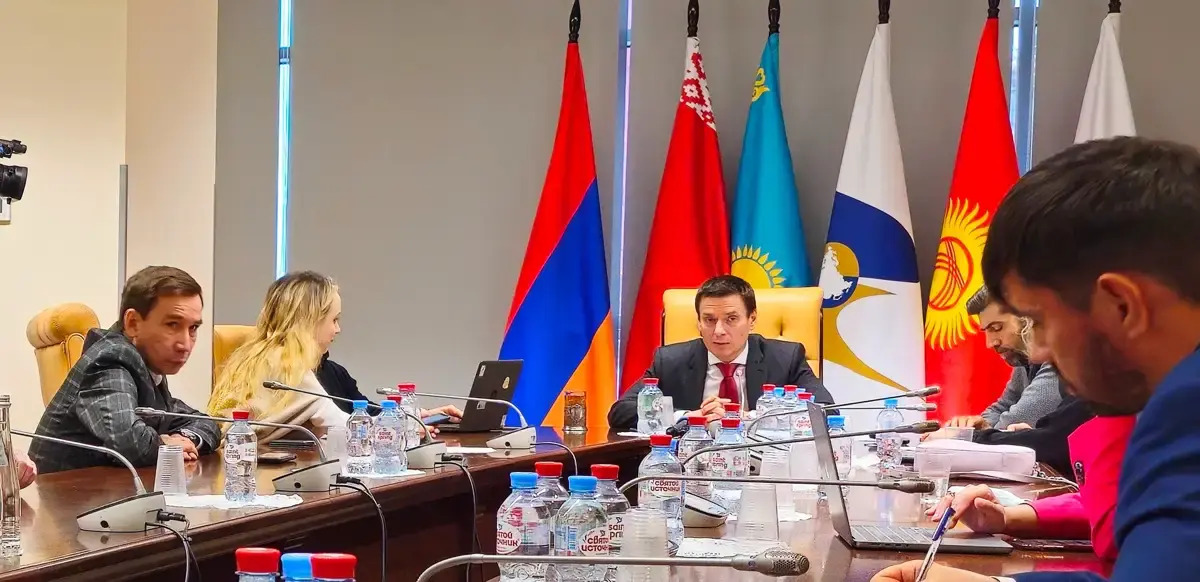ASTANA — A soon-to-be-finalized free trade agreement between the Eurasian Economic Union (EAEU) and Iran will elevate annual mutual trade to $18-20 billion and open doors for Kazakhstan, EAEU member, to fortify its presence in the Iranian market, said Andrey Slepnev, the member of the Board for Trade of the Eurasian Economic Commission (EEC), during a Dec. 21 briefing, Kazinform reported.

The EAEU-Iran free trade agreement is scheduled for adoption next week. Photo credit: Kazinform
Speaking about Kazakhstan’s potential gains, Slepnev highlighted the prospects for supplying traditional Kazakh products to Iran.
“In Kazakhstan, we see prospects for the supply of traditional Kazakh products to Iran, first of all, wheat, barley, agri-food products, and in the industry — metals, chemical products. This agreement will allow Kazakhstan to increase its presence in the Iranian market,” he added.
Slepnev underscored the strategic importance of Iran as a sizable market, a neighboring nation, and a pivotal player in the international North-South transport corridor.
“Iran is a large market, our neighbor, and a key country in the international North-South transport corridor. We consider the new agreement as one of the elements of this corridor,” said Slepnev.
He also emphasized that expanding the EAEU’s trade partnerships with third countries will allow for harnessing and growing the transit and transport potential of EAEU countries. With trade involving Iran, there will be a natural use of the North-South corridor, simultaneously contributing to the East-West corridor that traverses Central Asian countries and Russia.
Slepnev highlighted the increasing demand for inland transport corridors amid international turbulence. He emphasized the competitive advantage of speed and convenience in today’s economic landscape, asserting that the EAEU’s proactive approach positions it favorably to capitalize on emerging opportunities.
Trade between EAEU countries and Iran operates under a temporary agreement established in 2019, covering over 360 product items. Despite its temporary nature, this arrangement facilitated a remarkable doubling of mutual trade in just three years, surging from $2.5 billion to over $5 billion. By 2022, the figure had climbed to an impressive $6.2 billion.
Slepnev outlined the ambitious goals set by the agreement, asserting that the transition to a comprehensive agreement would pave the way for a rapid doubling of trade. The initial target is set at $18-20 billion, a milestone deemed achievable in the foreseeable future.
The EAEU-Iran free trade agreement is scheduled for adoption next week. The agreement’s implementation will adhere to the World Trade Organization (WTO) principles. Work is underway to harmonize regulations, particularly given that Iran is not a WTO member. Additionally, efforts will be directed towards expanding payment channels in national currencies.
